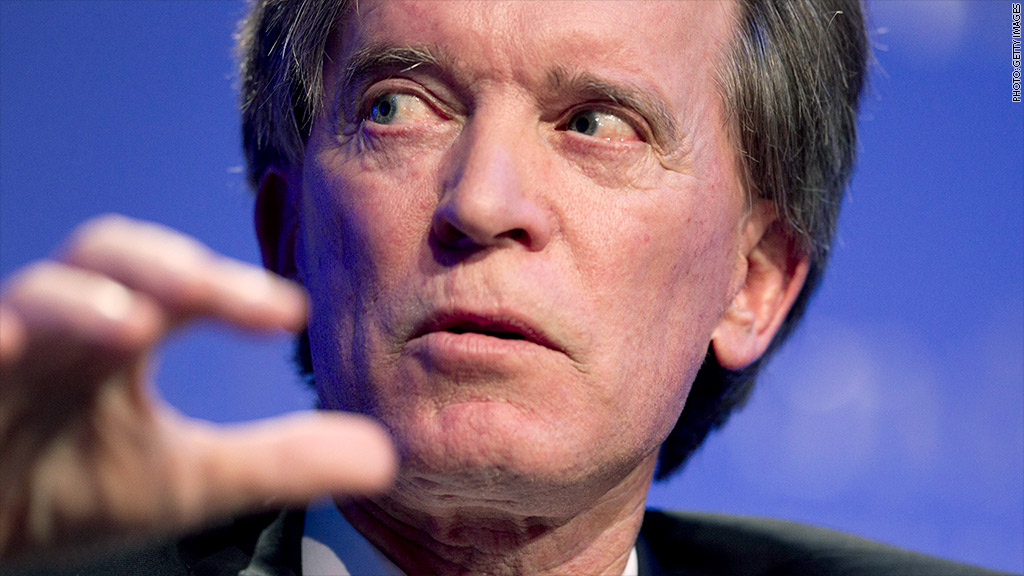
One of the world's most famous investors doesn't own a cell phone.
Bill Gross, nicknamed the "Bond King" and co-founder of giant investment firm Pimco, admitted to being a Luddite in his monthly letter to investors on Thursday.
His complaint against cell phones is that people -- especially of the younger variety -- try too much to capture fleeting moments like a firefly's flicker with their devices instead of living in the present and enjoying it.
Related: $20 cell phone service for whenever Gross gets to it
Drinking wine and having kids should be life's highlights, he argues, not cell phone videos and Snapchat.
While his technology recommendations may not be picked up widely, his take on the economy has more ring to it.
He says that the Federal Reserve's benchmark interest rate, used as the baseline for just about every credit and investment category, acted like a firefly before the downturn, throwing carefully calculated investment strategies to the wind.
"Prices of assets are, after all, quite similar to those Midwestern fireflies," he says. "On/off, up/down, they never stop moving -- and the chasing of them is often frustrating and unproductive."
The pursuit should soon be a little easier, he thinks, because rates aren't likely to go anywhere any time soon.
In a shift from his well-worn "new normal" phrase about the slow economic recovery, he suggests we're now in "new neutral."
According to Gross, rates aren't going anywhere despite that fact that the benchmark rate has been near 0% for more than five years.
The stock and bond markets briefly freaked out in March when Federal Reserve Chair Janet Yellen said that the Fed could conceivably start raising rates "six months" after ending its bond-buying spree. She has since backed away from such specific wording.
Related: Why are bond yields so low?
Gross writes that a neutral rate that stokes investment without creating bubbles should be low for a credit-dependent economy like America's. He notes that when economic growth is driven by financial gains and not the "real economy," the Fed should be more accommodative.
What used to pass as a neutral benchmark rate between 2% and 3% will now be somewhere around 0% for the next three to five years. In that light, he says, asset prices for things like stocks appear a lot less bubbly than previously imagined.
"We should get used to it," he writes. "And hopefully profit by it."


